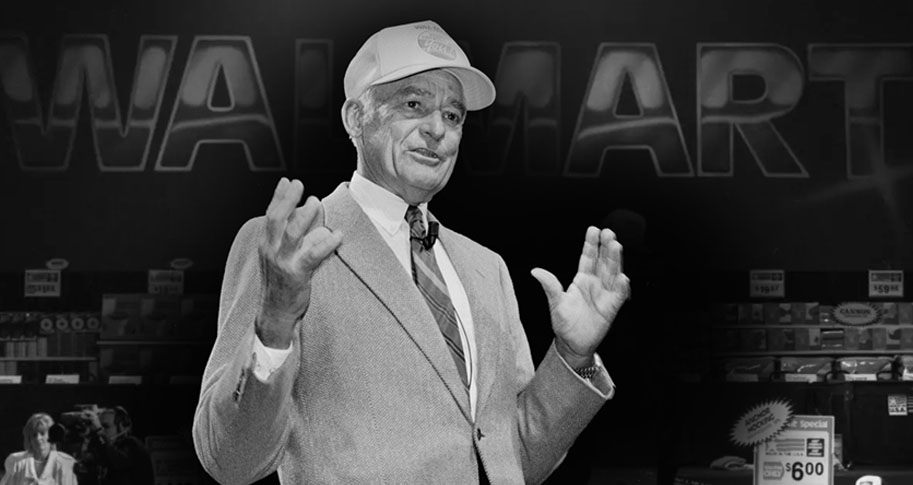
Note: This article is part of a series of Walton Insights reviews of classic books on business and leadership.
Earlier this year it dawned on me that I had consumed Sam Walton’s autobiography only in bits and pieces, so I made it a point to read the entire book. It was well worth the effort, and I was pleasantly surprised by how much timeless value I found in its pages.
In fact, while it’s unlikely that Walmart CEO Doug McMillon needs any advice from me, I would recommend he re-read Sam Walton: Made In America at least once a year, or at least re-revisit the highlights he’s no doubt made in his copy. And every Walmart associate who is a department level manager or higher should read it – maybe even pass a quiz on it before getting their promotion.
Of course, the book isn’t just valuable to Walmart associates. Any entrepreneur, owner of a small business, or leader of a team would benefit from it, and not just in bits and pieces.
Before I read it cover to cover this summer, I had referenced the book from time to time while working on various projects where we needed to quote Walton or share part of the Walmart story. We were describing Walmart’s early adoption of computers, for instance, detailing how the company developed its famed distribution system, or revisiting Walton’s “10 rules” for running a successful company.
Indeed, I suspect there are many leaders who have never read the entire book because they read the “10 rules” somewhere and figured that was all they needed. Why read a few hundred pages if its lessons are summed up in 10 handy, dandy rules?
Well, maybe because Sam Walton’s success, as he pointed out himself, hinged largely on his willingness to occasionally break conventional rules. And maybe because the best lessons in the book aren’t found in those rules. They are found in Walton’s life.
Walton’s book is, first of all, an amazing American success story – his story, but also Walmart’s story and the story of many of the people involved in building the company. It’s a reminder of all that went into the success – the setbacks, the hard work, the debt he and his wife took on, the creative resilience required to do things differently and better than anyone else, and the importance of values that not only lead to success but helped him, his family and the company deal with it.
It’s also well-written, which is not to go under-appreciated in a business autobiography. John Huey, who collaborated on the book, managed to keep Walton’s folksy, raw voice and downhome wit without letting tangents and non-sequiturs take over.
One of the unavoidable challenges with an autobiography of someone so successful is that it becomes clear very quickly that the author was blessed in ways that seem un-repeatable for the rest of us. Walton certainly set a high standard. He was an Eagle Scout, the point guard on a state championship basketball team, the quarterback on a state championship football team, the student body president – and that was all before he graduated from high school.
I’m pretty confident most of us aren’t as smart, charismatic, competitive, passionate about an idea, driven to excel, or intuitive about business as Sam Walton, nor will we ever match him in those areas. The value of his story, however, isn’t that it shows you how to become like Sam Walton. But it will help you become a better leader, regardless of your profession, and a better retailer (if that’s your profession) regardless of how that industry has changed.
As unachievable as it can seem to emulate Walton’s success, it’s hard to read his book without frequently nodding and saying, “I can do that,” “I can become better in that area,” “that will still work today,” or “something similar to that will work today.”
We can all set high expectations for ourselves, value our customers, treat people better, take a thrifty approach to our expenses, learn from everyone and everything around us (including our setbacks and failures), give generously to worthy causes, experiment with new approaches to our business, give credit where it’s due, hire good people, and share the rewards of our success.
If you focus only on the business practices used during Walmart’s formative years, you’ll find some of them shouldn’t be replicated in today’s marketplace. Times have changed. But the core ideas behind most of those practices still apply. You can still invest in technology, provide profit-sharing programs, share information with stakeholders, think small even when you grow big, and develop creative and even goofy ways to draw attention to your product offerings.
The home office, however, is a perfect example of how Walmart can’t get too stuck in its past. The decision to keep the offices bare-bones helped Walmart save money for its customers and develop a culture entrenched in Walton’s values and business philosophy. But the much nicer headquarters Walmart is building is very needed to keep it competitive in the future.
The key for Walmart, and for the rest of us, is to mine Walton’s book for the many timeless values and practices for leading others, building a business, and growing a business. There’s plenty in there that’s unlikely to grow stale. But I believe you’ll never glean all it has to offer without reading the full story, making your own highlights, and putting those bits and pieces into practice.






